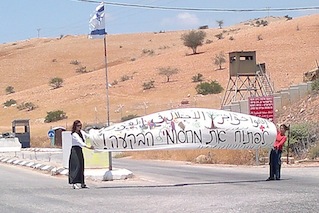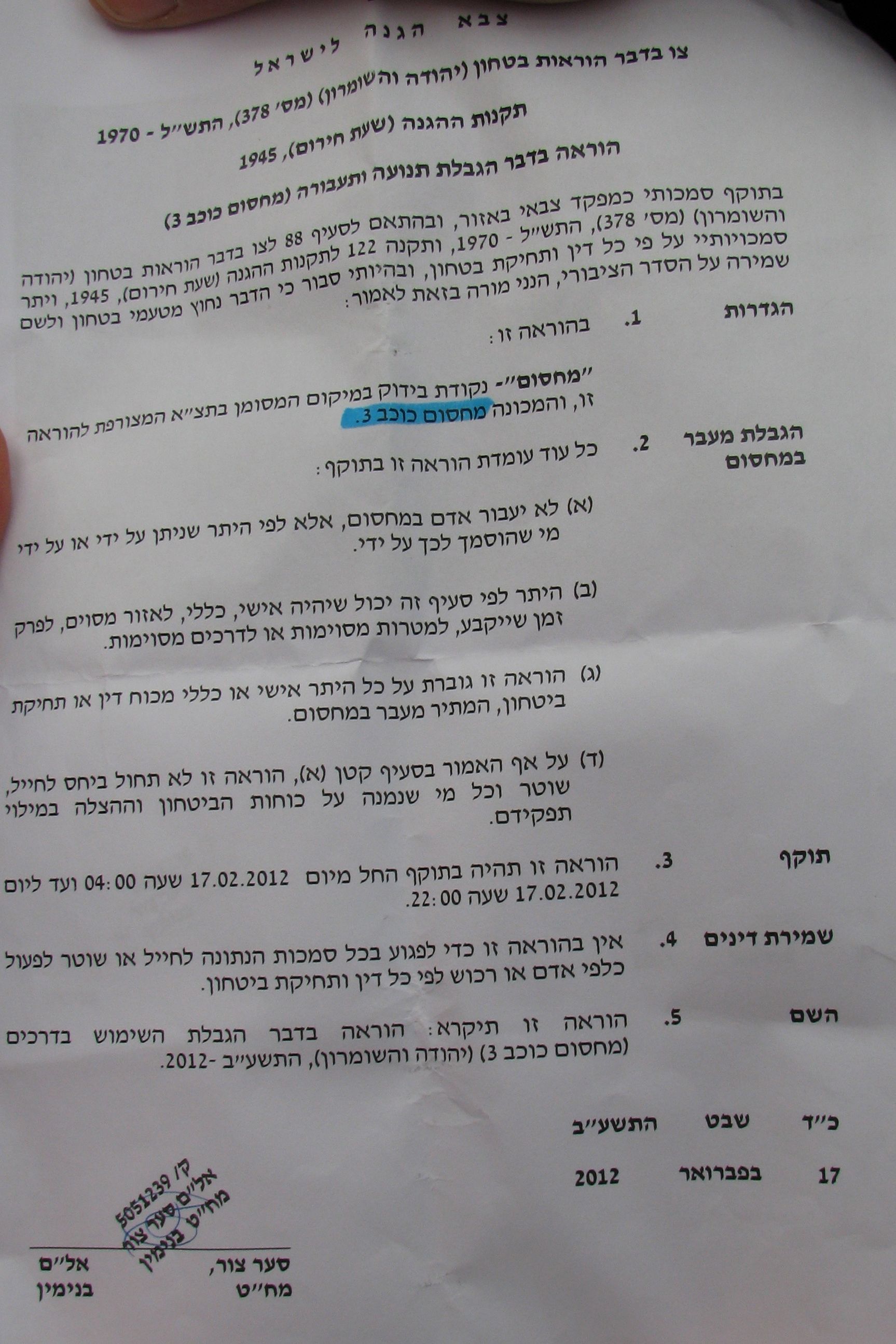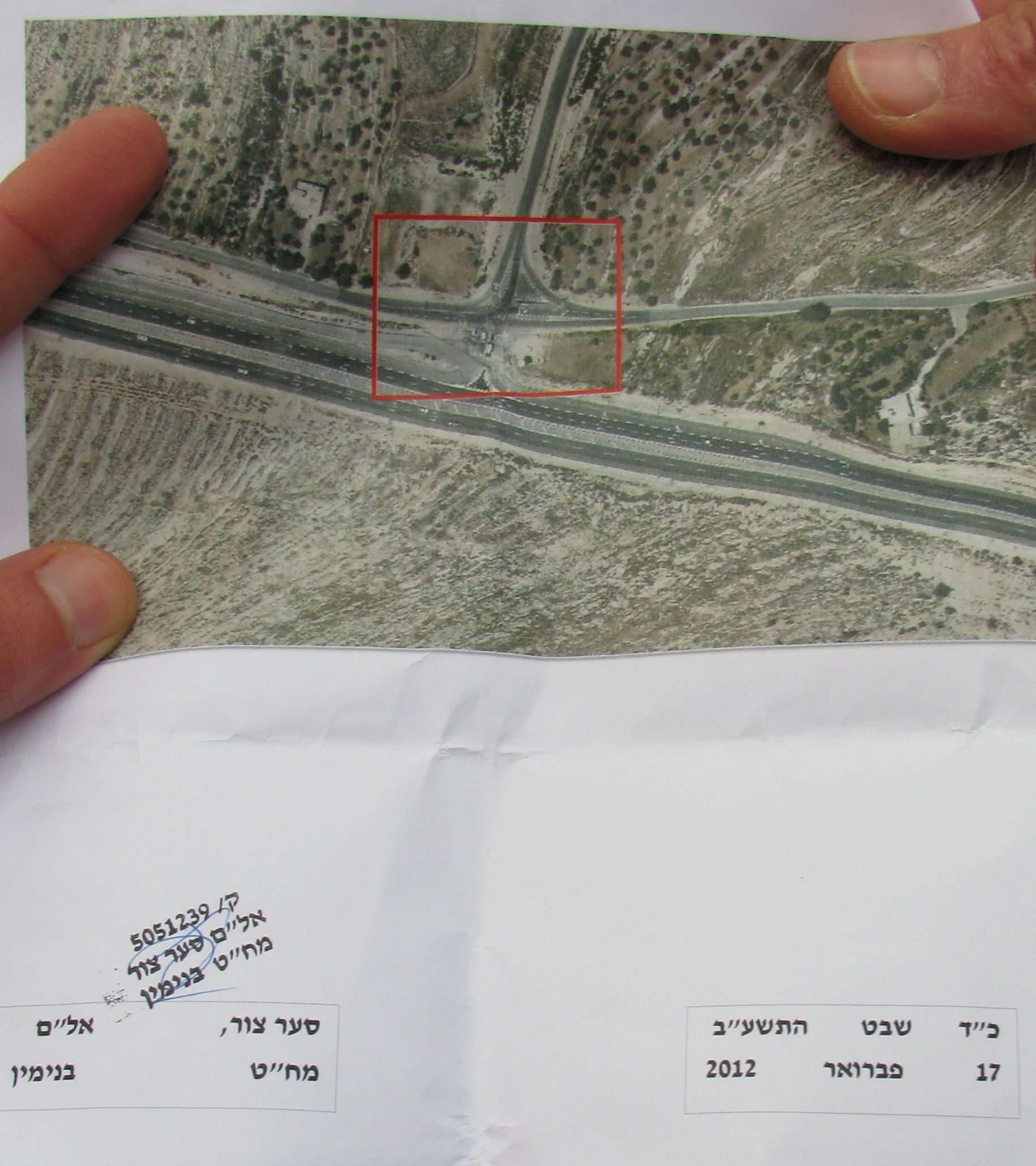Every human being has the right to freedom of movement, and the army must respect this basic right. Any road blockage and any prevention of movement on the road violate this right.

Blockages and disturbances of movement can be justified, but only if they are necessary for an essential security purpose.
Military and police forces are authorized to prohibit movement on a road or route only with an explicit legal directive, issued by an authorized person, who is a military commander (brigade commander, division commander, or the GOC Central Command). The directive must be accompanied by an official order, which is supposed to be temporary. According to Israeli martial law, such a directive should only be issued when reasons concerning the protection of public order and safety require it.
.
.
Although the military commander is authorized to temporarily restrict passage through the use of checkpoints, this authority can only be granted under exceptional and controlled circumstances, and the restriction must be accompanied by an official and signed order and can only be made when reasons concerning the protection of public order and safety require it.
One of the orders used by the Israeli military to restrict entry of Israeli activists who wished to participate in demonstrations in the Occupied Territories is titled "“Order regarding Limitation of Movement and Traffic (Hebrew)”. This order restricts, for a certain period of time that is defined in advance, the passage of any person who did not receive a special permit through the checkpoint. This order must be accompanied by a map marking the checkpoint to which the order refers.
As stated above, it is the right of any person whose entry was denied at the checkpoint to demand to see the order restricting movement through the checkpoint. Once this order is presented, it should be verified that it indeed refers to the checkpoint in question and that it is accompanied by a map that marks this checkpoint as closed for movement. It should also be verified that the following details are included in the order:
- The name of the checkpoint
- To whom the order applies
- The dates in which the order is valid and when it was signed
- The signature of a military commander
.

.

.
When presenting the order, the soldiers must identify themselves before the person to whom they are presenting it. If they fail to do so, any person is allowed to demand that they identify themselves and the soldiers are required to oblige. Refusal of the soldiers to identify themselves is grounds for filing a complaint.
It is recommended to keep full documentation of the order presented (photo, written details, details of the signatory), if there is any concern over the illegality of the order or its use.
It is important to note that we have previously witnessed incidents in which the military made arbitrary use of this order, in a manner that constitutes a draconian violation of the freedom of expression and protest of Israeli activists, as well as the freedom of expression and protest of the Palestinian residents. This injury is further aggravated when it is done solely on the basis of a general suspicion, directed against an entire group of activists, and without concrete probability of any danger to the area's security. When there is suspicion of arbitrary and illegal use of this order, the case should be referred to human rights organizations.
.
.
The occupying army is required to maintain order and security in the occupied territory. As part of its duties, and of the utmost importance, the army is obligated to protect the lives and property of the local residents, to protect them from harassments and assaults, and to prevent any attacks and damage to body and property. These obligations are enshrined in International Humanitarian Law (the Hague Convention and Fourth Geneva Convention), in Israeli law, and in Israeli military directives.
In any event, it is prohibited to prevent a person's movement for the purpose of protecting him or her from an assault (for example, preventing movement of Palestinians for fear that they will be attacked by settlers). Such movement restrictions are illegal. If there is concern that settlers will assault Palestinians, it is the army's obligation to prepare accordingly and to protect the Palestinians and their right to move freely (e.g. deploying security forces for protection, enforcing the law with regards to the assailants).
.
.
Every person has the right to have free and safe access to his or her lands and the right to cultivate them. These rights are not conditioned upon permits.
The military commander and the commander's representatives on the ground (IDF soldiers, Border Police, Israel Police) are required to ensure the safety of Palestinian farmers on their way to their agricultural work and during this work. Moreover, the military commander is obligated to allocate forces to protect the farmers' property.
The Supreme Court prohibited the practice of closing an area to Palestinians in order to protect them from settler violence. Therefore, the protection of Palestinian farmers cannotbe carried out by preventing their access to their agricultural lands and must not cause more than a minimal disturbance to their agricultural work.
So protecting Palestinians from settler violence does not constitute a legal cause for issuing a closed military zone order. When is the military allowed to issue such an order? The necessary conditions for issuing it are:
- There is a concrete danger (in a defined place and a defined time) for human life
- This danger cannot be confronted in a reasonable alternative manner, within the given time
- The area was closed for the minimal necessary period of time
- The closed area is the minimal area necessary for protecting human life
- The type and scope of damage to residents was reviewed on an individual basis
An order declaring the area as a closed military zone is only valid legally if it is signed by the brigade commander or a higher-ranking commander.
The military is authorized to use an oral order for the specific closure of an area only in exceptional cases and under unexpected circumstancesthat raise concern for an immediate danger to security. Such an order is also subject to the aforementioned conditions for issuing a closed military zone order.
Even if areas are closed, under a legally issued order, the military commander is obligated to allow Palestinians to finish all the agricultural work necessary for their lands that are in the closed area.
Civilians, including security coordinators of settlements, do not have the authority to act outside the area of the settlement and they are not authorized to deny entry to a certain area that is not part of the settlement.
.
- Ask the soldier denying the access to present an order declaring a closed military zone
- The soldier should be asked to identify themselves
- If a citizen is preventing access (illegally), ask this person to identify themselves and to present an identity card or a security guard card. If you are being forcibly denied access to your lands by a citizen or by a settlement security guard, you may file a complaint against them to the police
- When there is risk of confrontation with settlers – you can call the police and/or military forces that are in the area
- It is the obligation of security forces, in such cases, to act against the assailants and to protect your right to cultivate your land. If security forces are not fulfilling their obligations, you may file a complaint against them
.
.
 TechnoCraft
TechnoCraft